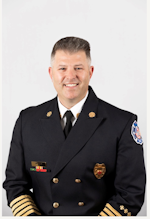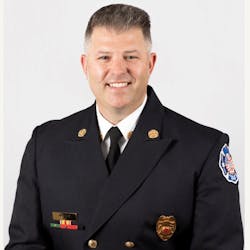An effective leader strategizes, takes action, identifies talent in people, cultivates growth and is a continuous learner who influences others by modeling values that define character. Leadership can take on many identities in a number of contexts in which a person is elevated to accept a challenge boldly, passionately and responsibly. Through position, passion and purpose, a person’s leadership philosophy can continue to grow and to influence and affect others.
Strive to foster collaboration, to cultivate character and to identify the importance of community. Embrace cultural change and enact necessary cultural shifts.
Leadership legacy
Leadership fundamentally motivates followers. It mobilizes resources toward organizational goals. It is the engine that drives innovation, adaptation and performance. Leadership requires boldness and a willingness to take steps that others are timid to take, where vision necessitates action-oriented responses that feed on habitual patterns of everyday work.
To be an effective leader, you must realize that strategy matters, that taking action equates to movement, that the identification of strengths in others fosters collaboration, cultivates opportunities for people to shine and serves as a springboard toward personal improvement.
What will your leadership legacy look like? For what do you want to be known? How will you leave the fire department better than what you inherited? Follow three Ps—position, passion and purpose—to affect the fourth and most important P: the people.
Positional leadership
As a leader of the department, it’s your responsibility to train and prepare people for organized chaos, to respond accordingly as a unified team that focuses on solving problems. By creating an environment and opportunity to foster problem-solving customer service specialists, your firefighters will be challenged and, thus, be better prepared to face unforeseen issues.
When complex issues arise, leaders are expected to respond accordingly, utilizing critical-thinking and problem-solving skills that are essential to reach decisions to mitigate the situation. As the culture shifts, practices change, and the vision ambiguity lessens. Preconceived ideas can shift toward relationship growth, which will help intentional actions toward solving problems and supporting people.
Leadership isn’t titles. Leadership is action. Each person, from firefighter to fire chief, should be empowered to enact necessary change, starting with attitude. By the responsibility of each position, recognize the sphere of influence that you are entrusted to lead. As company officers, you are the most influential people in the department, and the chief trusts you to “make it happen” each and every shift. Leading by example and working with people with intent model collaborative community that solves more problems than one person can. Pour your abilities and knowledge into others, so you and they can learn from each other.
Passionate leadership
Love of the job, the call to the fire service or whatever suits you as the change leader will engine ingenuity toward newness that organizations desperately need, where collaboration through unification invites and includes all people to discover their passion and how their own engine will drive positivity.
As the culture shifts and passions intersect, practices change. People look to support the movement toward values (foundational core identifiers), mission (what the department is now) and vision (where the department is going as a team).
Creating and cultivating culture can be accomplished by strategizing with relationally focused intentionality, by investing in others, by being the architect of opportunity for people to thrive, and by pushing each other to be better, do better and lead better. Be a coach who models the character of a team, because identity formation is key for organizational development and growth. Identify a group’s/crew’s dynamics through strengths and passions, to cultivate opportunities to grow, dream and accomplish the unimaginable.
Purposeful leadership
Task and relational behaviors shape the progress of the leader/leader connection by facilitating strategic, structured goals while connecting relationally and increasing the comfort level of the relationship. Purposeful leadership entails an intentionality that combines passion with positional awareness, as leadership abilities are necessary to mitigate a situation and/or pull the best out of people.
Change leaders thrive by cultivating community through collaboration. This must be purposeful through organizational adaptability, individual motive and effective work groups. When leaders are intentional within their skill set and they are open to growth, a rhythm of life and leadership is established for a culture shift that pays attention to detail and for a purposeful love for one another and for the job.
Not only does focusing on relationship and intentionality of vision as a team grow a purposeful leader’s own abilities, but it invests in future growth of others to be problem-solving customer service experts who truly love others and the job, particularly when the job doesn’t love them as much.
People
Leadership in action affects, influences and serves people. If you tend to land on “selfish island”—as your first thought is “How can this serve me?”—then consider this a piece of humble pie: Servant leadership is the heartbeat of an authentic leader, because decisions are made that serve the betterment of others, and nothing is expected in return. If you are an officer at any rank or an aspiring officer, understand that if you miss the servant leadership boat, the island of authentic leadership isn’t for you.
This isn’t to say that you can’t change—and humility is one heck of a game changer—but, please, for the sake of our people, embrace your role as a servant leader first and foremost. This is the true positional title that allows passionate leadership to flourish with purposeful intentionality toward being better, doing better and leading better. Be the heartbeat of change. Be the lifeline of service to others. Be what you always needed from an officer who authentically cares for people, where position, passion and purpose are revealed, cultivated, supported, and encouraged by a community that loves people and lives for a purpose above themselves.

Dr. Brett Ellis
Dr. Brett Ellis is a 27-year veteran of the fire service and serves as the fire chief for the city of Webster Groves, MO. He holds a bachelor’s degree in fire administration from Western Illinois University, a master’s degree in leadership and adolescent development from Huntington University and a doctorate in education from Concordia University-Portland. As a consultant (AGILE Leadership Consulting Inc.), Ellis focuses on leadership, firefighter behavioral health, conflict resolution, officer development, organizational movement, relationship building and personnel role plays that are based on fire service lawsuits. As well, he teaches for the National Fire Academy and Columbia Southern University.






